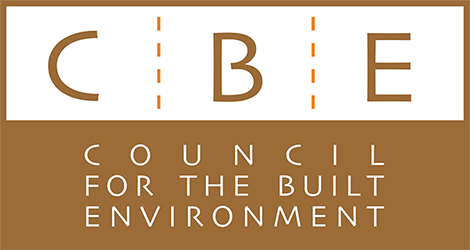No More Barriers: The Need for Universal Design and Access in South Africa’s Built Environment
Despite having a progressive Constitution and other legal frameworks at its local, regional, and international levels, South Africa still faces challenges in advancing the rights of persons with disabilities as it observes Disability Rights Awareness Month (DRAM) in November 2023. The national theme for this year’s Disability Awareness Month is “consolidate and accelerate rights of persons with disabilities into the future”; related to this umbrella theme is the Council for the Built Environment’s (CBE) contextualized one of “Co-creation of spaces which entrench Universal Access”.
On this subject, the World Health Organisation explains that “almost everyone will temporarily or permanently experience disability at some point in their lives”. A child, a person without a limb, a parent with a pram, people with low vision, Deaf people, peoplewith hearing impairments and the elderly are all examples of how this unorthodox disability may come about. This shows that universal design and access can benefit people with different abilities and disabilities, even if it is not obvious to many. It also promotes independence and reduces the burden of care for those who are caregivers/personal assistants. However, it is important to recognize the specific challenges of persons with disabilities, especially during DRAM.
The South African Built Environment has ‘invisible chains’ that restrict many persons with disabilities. Despite 29 years of democracy and the recognition of the rights of vulnerable groups, persons with disabilities still encounter many obstacles in the built environment that prevent them from accessing many buildings, tourist destinations and entertainment facilities. These inaccessible buildings include those that have steps without ramps, steps without railings, narrow doorways and hallways, heavy doors that are hard to open and close, poor signage that does not cater for the visually impaired, lack of handrails, lack of electronic devices to guide the visually impaired and traffic congestion that make it difficult for persons with disabilities to move around safely and independently.. The Built Environment should not be designed in a way that unintentionally denies the freedom of movement of persons with disabilities, who already face many other barriers.
These “invisible chains” result in persons with disabilities being restricted to their home and office spaces. As individuals, persons with disabilities, are for the most part, disabled by the environment to travel independently without a caregiver/personal assistant or go on holiday with accessible accommodation throughout to also enjoy the richness of South Africa. To provide access and freedom of movement provides dignity, respect and independence.
South Africa can achieve inclusion, but it needs to reassess itself and act accordingly, otherwise full and effective participation of persons with disabilities on an equal basis with others, to the greatest extent possible, will remain out of reach. Built Environment Professionals in South Africa should adopt the concept of Architect and Author Ronald Mace, who said that “buildings need to be visually pleasing and usable to the greatest extent possible by everyone, regardless of age, ability, or situation”. Ronald Mace proposed seven principles of universal design: equitable use, flexibility in use, simple and intuitive, perceptible information, tolerance for error, low physical effort, size and space for approach and use. Moreover, the South African government and its agencies have a duty to ensure that the built environment is barrier-free for all.
Furthermore, despite the country’s numerous liberal policies and legislation, implementation and sound monitoring and evaluation processes (that are qualitative and not just quantitative) remain an ongoing pursuit. Consequently, South Africa needs to proceed with greater intention, planning and an inherent culture of adopting best practices from countries that are high achieving in universal design and access. All this must be done in collaboration with persons with disabilities to realize the CBE’s 2023 Disability Month’s theme “Co-creation of spaces which entrench Universal Access”.
Issued by:
Dr Msizi Myeza
Chief Executive Officer
Council for the Built Environment
Tel: 012 346 3985
www.cbe.org.za
Enquiries:
Ms Nosizwe Mokoena
Strategic Support and Engagement Specialist
Mobile: 078 415 9211
Email: nosizwe@cbe.org.za
Ms Sinah Ndala
Communication Associate
Email: sinah@cbe.org.za
